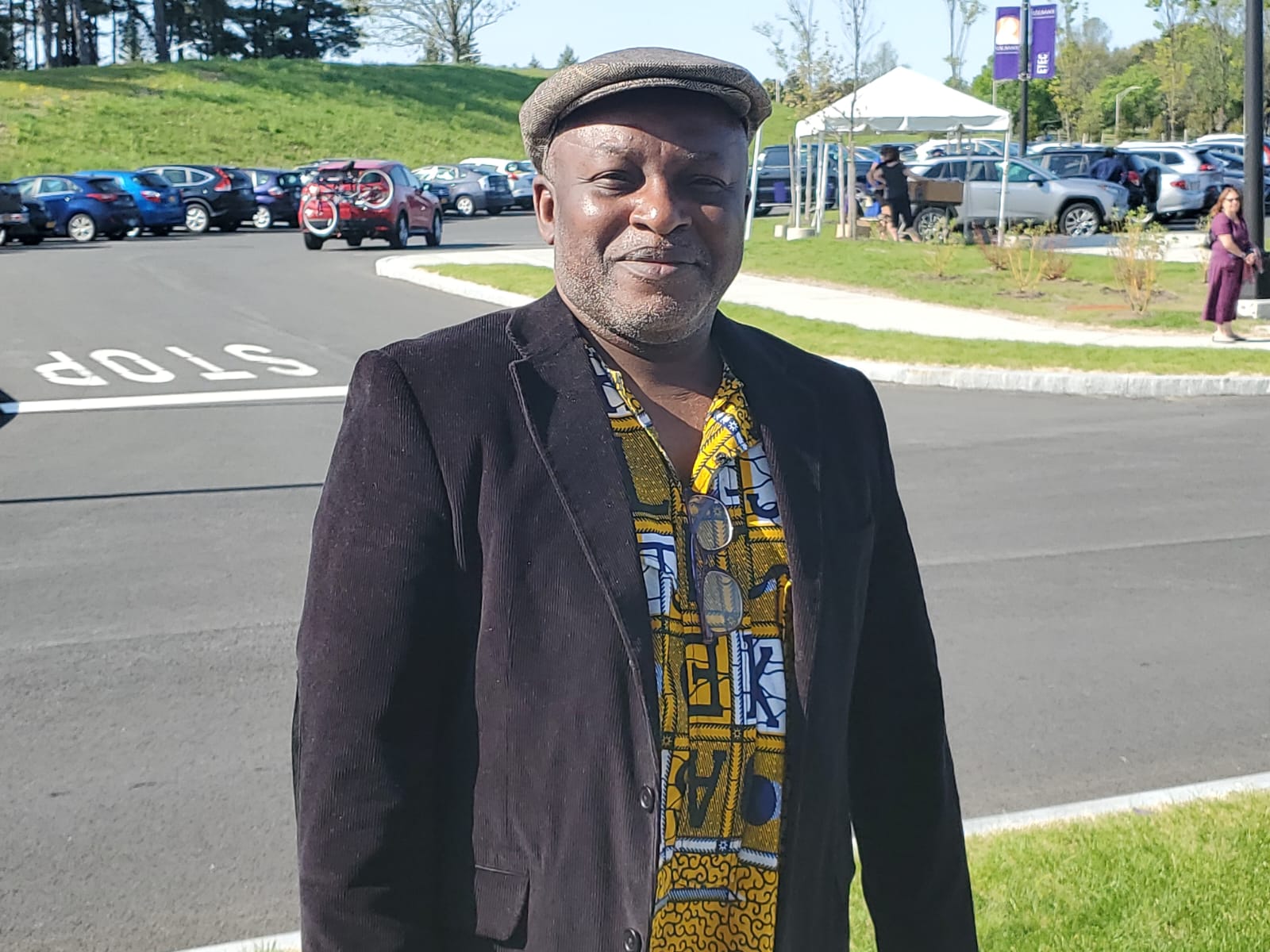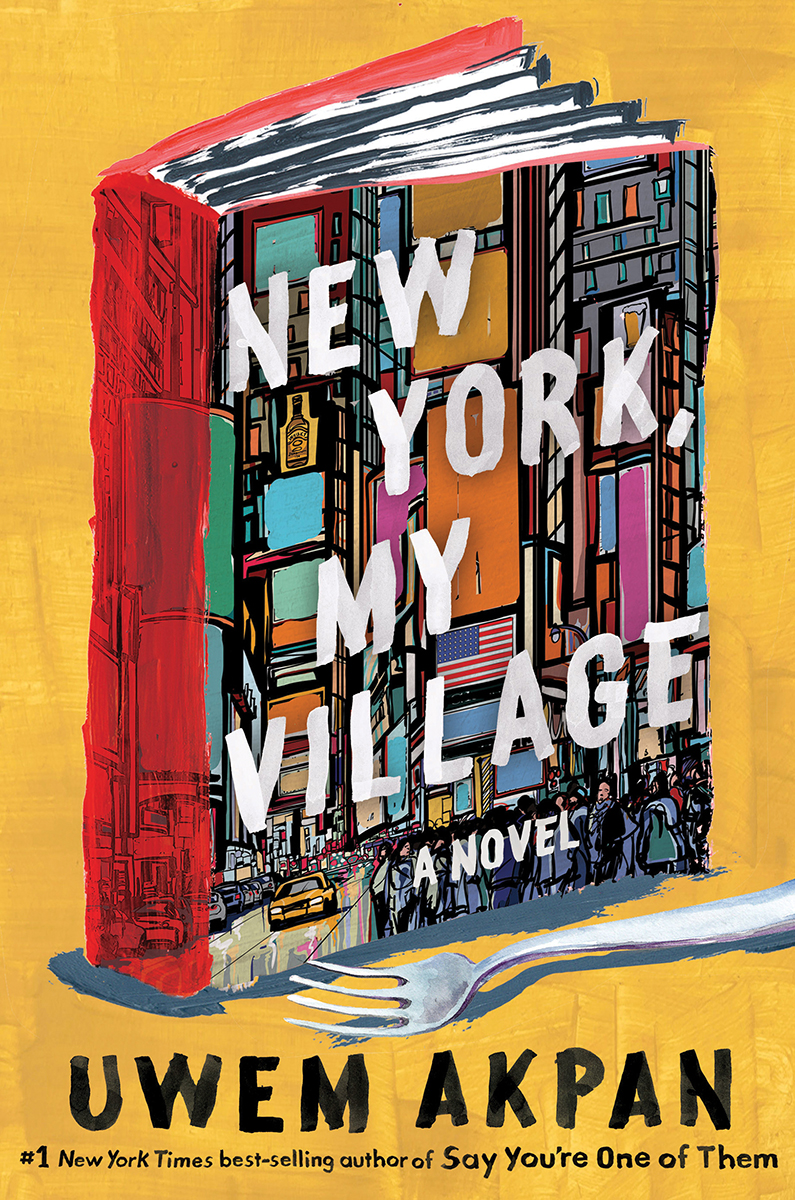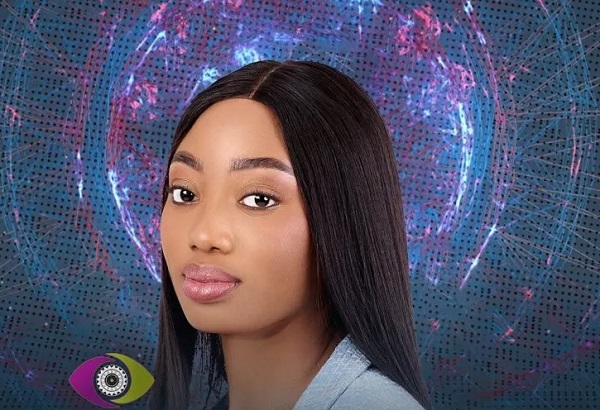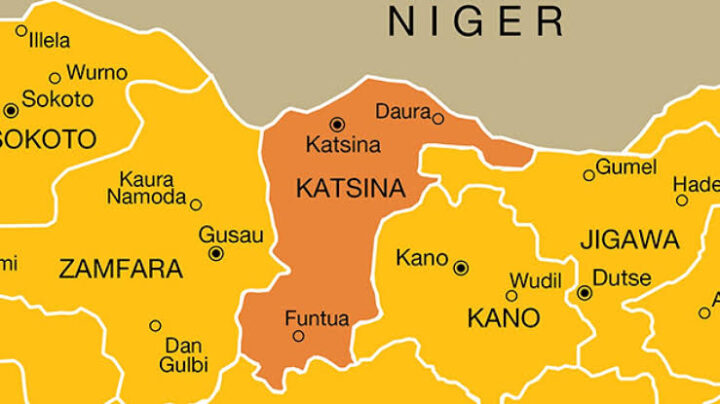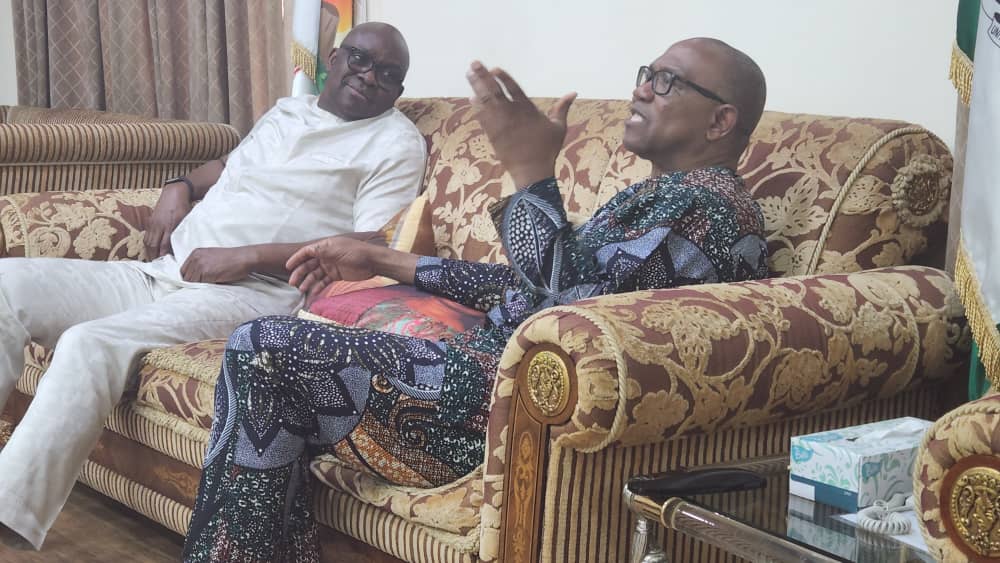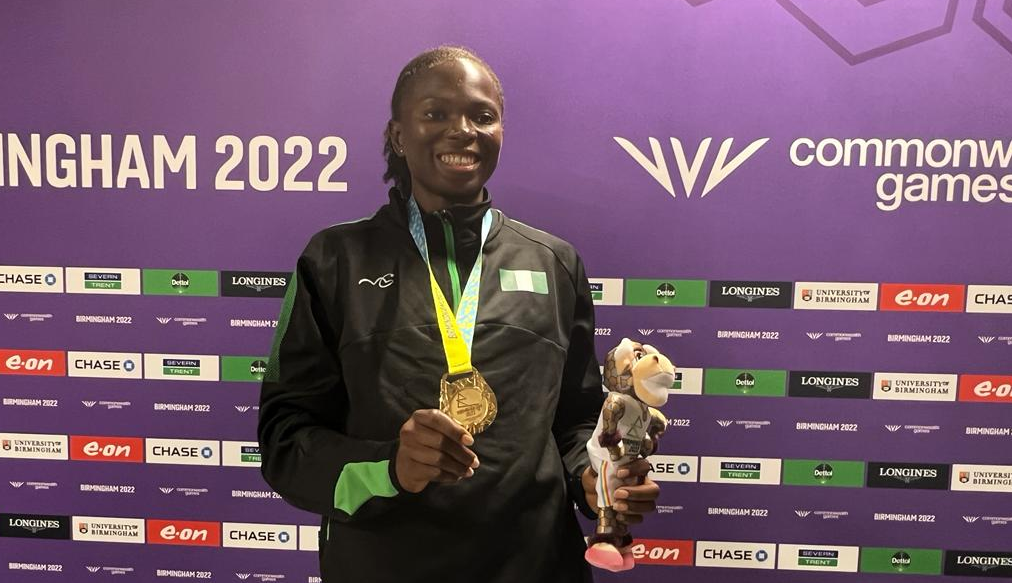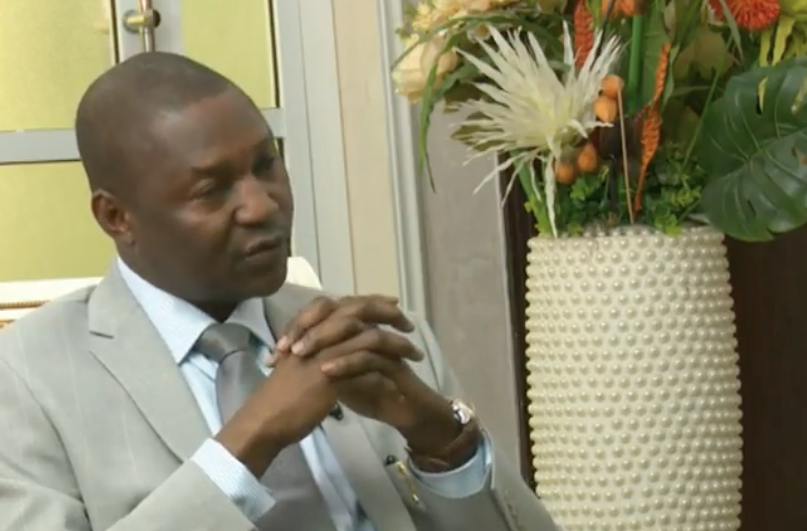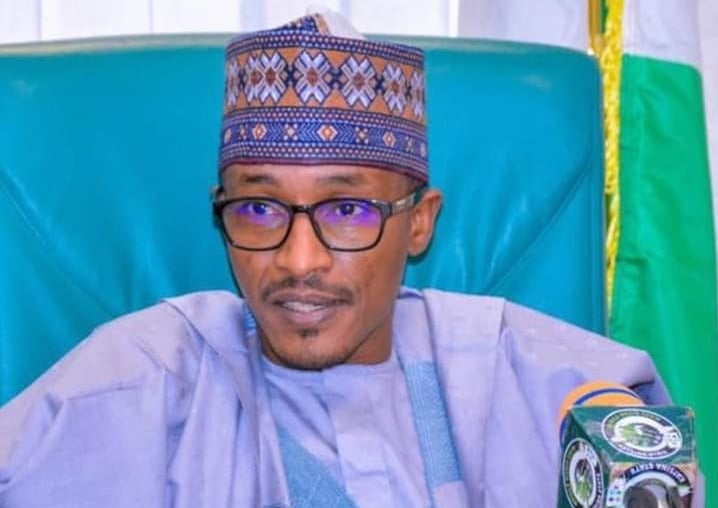This is a two-part fan interview about Uwem Akpan’s novel, New York, My Village (Norton, Nov 2021 & Parresia Nigeria, March 2022). His first book, Say You’re One of Them, was the winner of the 2009 Oprah Book Selection, 2009 Commonwealth Prize, 2009 Hurston-Wright Prize, etc. The following questions are from fans and cancelled interviews—questions which were deemed too incendiary for publication.)
HIGHLIGHTS
- Half of a Yellow Sun vs New York, My Village
- How the Annangs at home and abroad are celebrating ‘New York, My Village’
- How the one-sided Biafra narrative affected my seminary studies
- What my mother thinks of New York bedbugs
- Why the senate must press on to impeach Buhari
- Why Nnamdi Kanu must be released immediately
- Why I endorse Peter Obi
Uwem, congratulations on New York, My Village!
Thank you, my fans and supporters!
Advertisement
What a gripping, suspenseful book. Our emotions were all over the place! One moment we were laughing, another moment we were crying. How do you yourself, the author, survive writing something like this for the 13 long years it took?
Let’s just say it was very depressing. What happened to the minorities in Biafra is quite disheartening. And writing it took so long that I doubted I would succeed.
Wow, but succeed you have! Last week, in the Guardian UK, Okey Ndibe 2022 chief judge of the Caine Prize, called it “a worthy follow-up to his audacious story collection Say You’re One of Them. It’s a magisterial read, one of those rare novels that—because they are bristly, unsparing, challenging, and capacious—are bound for timelessness.” The award-winning Chika Unigwe listed it as one of the best four books ever in Le Monde, France’s most powerful newspaper.
Advertisement
I can’t thank them enough for amplifying minority voices!
Your new book raises many questions about Nigeria as a nation, especially as we plan for the 2023 elections. Why are we together? Why do we need to remain together? What has the Biafran War done to the soul of this nation?
You can hear the echoes of this war when Kashim Shettima of APC insulted Peter Obi that he would only rule in Igboland. Horrible, horrible thing to say!!! Why such blatant discrimination? People like this shouldn’t be allowed near power. Why continue this war on the Igbos…?
Hold on, please! We will come to that in Part 2. For now, let’s start with your own portrait of the Biafran War itself in your novel… Please, tell us how the post-war atmosphere of the 1970s and 1980s shaped your childhood in Annang land in Akwa Ibom State, Nigeria.
Advertisement
I was born after the war. We ate and played and laughed a lot in our childhood, so it was difficult to understand all the horrible war hunger, and rape stories our parents were telling. We used to be very mad hearing that Biafran and Nigerian soldiers had even harassed our grandmothers! You just felt something huge had happened to our people, something they couldn’t really convey to you. These were heavy and painful stories. Though they told these stories during the day, they were still very frightening—quite different from the enjoyable fables they told us at night.
Looking back now, are there particular memories you want to talk about?
How do you mean?
In your very candid interview with Sola Osofisan in AfricanWriter.com, you mentioned wrestling on a mass grave behind your primary school.
Advertisement
Yes, yes, in 1977, when I began primary school at age six in Ekparakwa, I learnt a lot about the war. There was a mass grave of Biafran soldiers behind the classroom block, soldiers who’d used our school as barracks in 1967. We heard Nigerian forces killed them. By 1977, that place had sunk in. And as children we would play on that surface and, sometimes, someone would rip a bone from this thing and scream…so, yes, physical signs of the war were everywhere. Sometimes it was unused bullets in the bushes or Uncle Itiaba’s atimeukwak, some metal bar he brought home from a crashed war jet. When my family relocated to Ikot Ekpene, we even had more war “memories.” Look, as a ten-year-old, I was really frightened by stories of Biafra abducting young minority boys for their army and killing or raping those who escaped and were recaptured. They’d been branded as saboteurs. Ikot Ekpene was a sad warfront. That was when I first learned that men could be raped. It was quite frightening to us kids because of how the adults whispered about it as absolute humiliation. We even heard whispers of a woman who rejected the husband rape victim till he went for cleansing in the native shrine.
Advertisement
The very nonsense “cleansing” some men put their wife victims through! We hope this role reversal taught our patriarchal cultures a lesson. Rape is horror. Rape is difficult for victims. But male rape isn’t common in African literature.
One interviewer did everything to stop me from talking about male rape in their interview. Even when I begged and explained how these stories affected me as a ten-year-old. Oh no, it was supposed to be toooo incendiary!
Advertisement
It’s important that we get all aspects of this war on the table.
Indeed! I think it’s the way the adults talked about Biafran male rape in patriarchal tones that drove our fears to a whole different level. Remember, children depend on adult interpretations of events. My childhood dreams became nightmares where I began to bleed from my anus as Biafran soldiers pursued me screaming “Saboteur, Sabo, Saboteur!” And I was ashamed to tell anybody about these nightmares.
Advertisement
Can you tell us the difference between your historical novel and Chimamanda Adichie’s most celebrated historical novel, Half of a Yellow Sun? There’s a huge conversation brewing worldwide between these books.
I’m aware of the mooted comparisons. It’s tricky to compare one’s book to another.
Have you two ever talked about the Biafran War? Give us, lovers of literature, something to guide the conversation.
In 2009, I was very happy to meet Chimamanda in New Zealand. She signed my copy of Half of a Yellow Sun. As I told her then, I wouldn’t be able to read it until I’d finished my own Biafran War novel. I didn’t want hers to interfere with my thought process. I finally read it and used it for my fiction class last year, as soon as I finished writing my novel. I had to be patient for 11 long years to read this important and majestic book. God bless her for all her writings and interventions and insights in and outside of literature. And it was a real blessing for her to rally her spirits, amid mourning her mother’s death, to write so powerfully in the New York Times about the killing of young, Nigerian EndSars protesters in October 2020.
But as our people say, when a woman is overtaken by labor in the market, you can’t blame her for opening her legs. My novel and our sister’s novel are two very different books in terms of politics and style. But let’s forget about style for now. My politics is totally different from hers in the portrait of Biafra. As Brittlepaper.com review of my book said, while Half of the Yellow Sun is set during the war, mine transcends that period into the angst of the first and second generations of war victims and the diaspora. We get to see how war traumas affect both people who saw or didn’t see the war. Her book also highlights the rape of women while mine focuses on the rape of men. Many younger Nigerians tell me this is the first book that’s helped them to emotionally understand the history of Nigeria.
But I think the biggest difference between both books is that my work hails and celebrates the existence of Nigerian minorities: it sees Nigeria and the war through the eyes of minorities while Chimamanda mainly deals with the Igbos, Yorubas and Hausas, the three majority ethnic groups. In her world, the Igbos are the victims. In mine, they ARE the oppressors and colonizers of minorities even as they themselves are being victimized by the crazy Nigerian army. I also show how this same Nigerian army turned around to also abuse minorities. Simply put, we minorities don’t exist or barely exist in Half of a Yellow Sun. It’s worse, because her portrait of Igbos spitting on Dr. Inyang, “the saboteur,” is needlessly gaslighting of minorities. Also, the portrait of Colonel Ojukwu is that of a wonderful soldier, the orator, the protector of Igbos, the freedom fighter. But the characters in my novel and the interviewees in my acknowledgments (Nigerian edition) can’t deodorize Ojukwu. They see him as a crazy dictator who, with General Ironsi, first blocked the secession of minorities from Nigeria in 1966, a year before the Igbos wanted Biafra. They see him as the one who gambled with the lives of millions of Igbos and minorities in a war about the oil and coastlines of the minorities. Who fights like this for someone else’s property? Why block us from having minority states? Based on this action, I think it’s the Igbos who should’ve been called saboteurs. My characters and interviewees also see Ojukwu as the dictator who sent his goons to rain terror on minorities in Biafra and other minorities in today’s states of Edo, Delta, Kogi and Benue. And, in my novel, you’ll also learn how he lost the plot totally by invading Nigeria and ordering the spray-bulleting of 11 Italian oil workers and burying them in a mass grave in May 1969 and collecting ransom for 19 more Europeans he put on death row. In revenge, the white folks, “the Owners of the World,” winked at Nigeria to destroy Biafra in six months. Ojukwu had made the mistake to treat them like minorities! That’s how Biafra lost the war.
Wow, no wonder you say the two books are quite different. Did some interviewers not tell you that these Ojukwu claims might prove incendiary?
Indeed, some did. But it’s crazy when someone pushes you to compare two books and then turns around to complain that it’s too incendiary…
Incendiary for whom?
I just don’t know why someone would want to police how we, minorities, talk about our colonization by the Igbos. Would we Black folks accept this from white people? Why is it incendiary to say what minorities went through or how they see Ojukwu?
Your book is the first minority novel that shows what Biafra did in multiple minority lands—as opposed to focusing on just one ethnic group. It’s chilling, and unnerving to hear the actual accounts of war survivors in your powerful and unique acknowledgments, from one ethnic group to another, from one part of the delta to another. It’s a book within a book!
Yes, I wanted to show the world that our subjugation was systemic, not accidental or haphazard. Ojukwu’s men basically subjected all of us to the same colonial tactics, the same Igbo supremacist bullshit, the same divide-and-rule wuru-wuru, etc., etc. This is a part of the war least written about. Igbo writers have already done a brilliant job on the evils of the Nigerian army… look, Biafra was pure coordinated evil in minority lands.
So you’re not afraid of a backlash?
I’m open to intellectual conversations. Listen, in There Was a Country, Achebe himself said the murder of the Italians lost Biafra the diplomatic war in Europe and America. Ojukwu messed up all this wonderful work Achebe, the war envoy, had done. Unless you’re a superpower, whoever kills white people like that without the West coming for them? I’m just stating the brutal reality.
How do you think Achebe would’ve reacted to your book?
I believe with all my heart that he would’ve reached out to our minorities. He was a humble man. Now that my novel has shown clearly why the rest of Nigeria felt let down by There Was a Country, I believe he would’ve reacted with compassionate and wise words. I believe he would’ve appreciated the everlasting love between the Ogoni and Igbo families in my novel. The fact is, despite the bad blood from the war, the Igbos shielded many Ogonis when General Abacha killed Ken Saro-Wiwa and wanted to wipe out the Ogonis in the 1990s.
In your interview in the Guardian (Nigeria), Anote Ajeluorou worried about how the Igbos would react to your book. Later on, in the AfricanWriter.com interview we mentioned, you did confirm you’d actually lost some of your Igbo friends since the book came out.
Yes.
Have they returned?
Well, it hasn’t been easy for me. I’m still getting some threats and persona-non-grata messages.
What’s the nature of these threats?
For example, last February, an Igbo Jesuit priest—a former colleague I’d actually lived with when I was a still Jesuit, someone I’d helped—went on Facebook to threaten me for “bashing” Achebe’s book. He could’ve sat with minority Jesuits, to talk like brothers about this war as a national tragedy.
Are you saying your former colleague, a Catholic priest, threatened you on Facebook because you wrote about Biafran atrocities?
Yes, he went on Facebook to assure me of a huge backlash and wished me “condolences.” Is he going to kill my family? I don’t know. Why must my family blood be used to cover Biafran iniquities? Is he going to hurt my friends? His Facebook friends were also already threatening that there’d be no hiding place for me. In the same post, he ended up signaling to General Buhari to exile me from Nigeria for allegedly insulting the Fulanis—this same priest who’d been crying over the killings by Fulani herdsmen. This and the horrible bullying and relentless threats to Bishop Matthew Kukah, David Hundeyin, Governor Ortom, etc by the Buhari government are what I condemn in New York, My Village! Why is this Jesuit priest not protesting what the herdsmen are doing in Southern Kaduna and Benue State or what Unknown Gunmen are doing in Biafraland? This is the same priest who had insisted at a general Jesuit meeting in Benin City that northern Nigerians should never, never be allowed to join the Society of Jesus. You can imagine the pain on the faces of northern Nigerian Jesuits and the embarrassment on the faces of fellow Igbos! SoI don’t remember when he started loving anything Fulani. Please, I’ve no problem with negative critique of my work, but this Catholic priest’s ethnic baiting has been a difficult thing for me—just because I’ve revealed to the world that his precious Biafra was as evil as Nigeria. Just because I’ve said extremist Biafrans like him are claiming minority lands AGAIN in their new Biafra dreams without dialoguing with us.
You did say your friends and family had warned you to stay away from Nigeria till “things” calm down, till people recover from what TadeAina calls the “brutal honesty” of your novel.
Yes, some were saying if a priest could go this far, God knows what others…They’re afraid Biafran War II might break out at my readings. This year, though I got a semester leave from my university, I couldn’t travel to promote my book in Nigeria because of angry readers. I couldn’t make the recent Ibom Arts Festival—the first such festival in my state, organized by Kate Ekanem Hannum. I was supposed to headline it, but I couldn’t read in my beloved Akwa Ibom or Annangland or other minority lands on whose behalf I wrote this book.
No wonder you’re quite emotional about Okey and Chika’s endorsements.
Yes, it meant so much that these top Igbo writers believe I have a right to tell a Biafran story. They understand that Nigeria needs these conversations!
I also thank God that I’m getting support from young Igbos. Many of them are disappointed that Half of a Yellow Sun and There Was a Country, their top books on Biafra, didn’t signal to them that their parents and grandparents ultimately went to an oil war—which meant blocking the creation of our little minority states, where most of the oil was—or that Biafra was concentrated evil in minority lands. I’m happy that, at least, they’re reaching out to me for counsel about how to approach my book. “Please, are you telling us we were Russia, and minorities were Ukraine?” one of them asked because they’ve never thought of themselves as colonialists or killers. It’s surreal for the Igbos to learn that there are decades-old annual minority festivals celebrating liberation from their precious Biafra. They confess it’s the first time they’ve run away from a book about Biafra.
Have you attended these festivals before?
Yes, I witnessed the Tungbo-Sagbama version as I researched the war in Ijawland in 2016. You can read the account in my acknowledgments. I shall remember Ijaw hospitality forever. I encourage my Igbo fans to take their time, but that it’s really, really important to read a book like mine, the same way white people have learned to read these books we write about slavery, colonization, racism, police brutality, etc. I whisper in my Igbo fans’ ears never to tell minorities they won’t read our war books because we’ve been patiently celebrating and reading theirs and watching their Biafran War movies for 50 long years. But it’s a steep learning curve, double jeopardy, to simultaneously learn of these Biafran atrocities and to learn that they themselves had fallen victim forever to “The Danger of a Single Story.” In fact, we’re in this position because we’ve refused to read Isidore Okpe who’s Last Duty (1976), Ken Saro-Wiwa’s Sozaboy (1985), Sam Omatseye’s My Name Is Okoro (2016), Nkrumah Bankong-Obi ‘s The First Shot (2022) among others. Lastly, I appeal to them to tell their neo-Biafran forces, whom many of them sponsor, that it’s a heartless provocation to put us on their map WITHOUT ASKING US!
Attempting to assuage their guilt, I inform my Igbo friends that, look, our minorities, unfortunately, also hit the Igbos with reprisal violence once Biafra fell in our lands. We committed a lot of atrocities, supported by the Nigerian army. An example in my book is the fate of Caro’s grandpa. It’s also important for my Igbo fans to hear that despite the painful history, many Igbos, angels, helped me research my novel in Igboland. I applaud these helpers for the risks they took to guide me through atrocity sites in Igboland and for their solid belief in the power of storytelling to educate, to heal.
What has been the reaction of other Nigerians to such different perceptions of Biafra?
I’m hearing from all over the country. Huge, huge conversations and emotions. Many are learning for the first time that Biafra, like Nigeria, was a wicked, horrible oppressor, who also blocked the creation of minority states. You can catch some of this in my interview with Toun Gabi-Williams of Bordersliteratureonline.net.
What do you think accounts for the excitement about your book?
I believe it’s my inclusive politics.
Any examples?
I find a way to say positive things about all ethnicities and races I mention. I also think my book heralds the mighty loosening of the Igbo iron grip on the Biafran narrative in the international community. Who’s not surprised at the secrets of Biafra?
We also believe it is the first time the war is being presented as a national tragedy—as opposed to just an Igbo one.
That’s also the judgment of many Nigerians and foreigners who’ve read my book.
It empowers us, who weren’t in Biafra, to talk about the soldiers the Nigerian army lost to the stupid war, we mean our relatives. This war made some of us widows and orphans.
I’m relieved, and happy that, 50 years after the conflict, I’m able to give our Nigerian and Biafran people this “freedom,” to begin this big necessary conversation. I must say I was very touched when the novelist Helon Habila, a northern Nigerian minority, recently told me how this war affected his early childhood when his soldier father returned from the war front…One day we must sit down as a nation and talk about this war.
Uwem, take us to Annangland. What’s been the reaction to the book, given that your big protagonists are Annang?
It’s difficult to put their joy into words because Nigeria, as a country, has been bullshitting and gaslighting minorities forever! OK, to give you a sense, let’s go back to our sister Chimamanda’s image of Dr. Inyang, “the saboteur.” This portrait choked me when I read the book last year, and it hasn’t been easy for us, the ethnicities of Akwa Ibom and Cross River states, where the name Inyang originates. Those who read it 16 years ago when the book came out, say they still feel the spit on their faces. Does anyone remember seeing anything positive about minorities in Half of a Yellow Sun? For the avoidance of doubt, I believe people should be free to write about anything, but this image in question sounds like Appropriation gone wrong.
I can’t forget the young Annang man who tearfully told me of how, after reading Half of a Yellow Sun he’d come to believe that his people, the minorities, were evil saboteurs of Biafra. He’d loved the book so much he said he initially viscerally accepted the fact that Dr. Inyang, deserved to be spat upon by the Igbos. He became ashamed and guilt-ridden and apologetic around his Igbo friends, for having betrayed their Biafra paradise—not knowing the Igbos actually fought this war to stop us from having our little autonomous states, not knowing this same Biafra had its knee in our neck the whole time. But, since my novel came out, his perspective of Half of the Yellow Sun has changed. He said, first, he felt very stupid, misrepresented, violated, then angry! I explained to him that this is precisely what superbly crafted “colonial literature” or “colonial imagery” does to the minds of the victims, for the Igbos did everything to colonize us in this war. Now he’s calmed down. He’s figuring out how to enlighten his friends, and my acknowledgments are helping him correct the tremendous injustice Half of the Yellow Sun does to the minorities of Rivers State.
Let’s dwell a bit on your “colonial imagery” claims of Inyang.
Okay.
Does the very humane Kainene, the wonderful Igbo character, not come to Inyang’s defense by slapping the woman who spits on Inyang? We believe Chimamanda is trying to be inclusive, to show that minorities were part of Biafra.
Oh no, Kainene’s “humane” slaps worsen the imagery!
Maybe Chimamanda didn’t know that Biafra was anything but inclusive—then and now. Using victims and minorities to show the humanity of the colonial people is a colonial trick! And who told you colonial masters can be inclusive? When did a cockroach ever survive a meeting with a fowl? If she really wanted to be inclusive, she would’ve started by fleshing out the Inyang character. As it stands, it’s too cryptic and opportunistic. Look, it appears as a prop for the sole purpose of enhancing the humanity of Kainene. Mind you, I love Kainene. She’s probably my best character in the book, but in this particular incident, I felt she was made to appear like a white-savior, or is it Igbo-savior character?
Worse, I mean, Inyang couldn’t even utter a word, which amplifies her powerlessness, her stripped humanity! Does this further the development of Kainene’s character? Certainly not. In my opinion, this actually weakens it. And what was the point of portraying us as mere victims? Is that how Igbo or white characters are presented? What did we do wrong? Did we dishonor the Aburi Accord? Did we invade Igboland? Did we commit genocide against the Igbos?
Finally, please, consider the context of this spit on “our” faces and the Igbo-savior complex: We minorities had been asking for autonomy from the Igbos since colonial times. The Igbos made the monumentally selfish and colonial decision to block the creation of minority states(General Gowon announced the creation of 12 states on May 27, 1967) by forcing us into Biafra on May 30, 1967. They invaded, killed and disappeared those who objected, burning down whole villages? They conscripted our minors into their army and raped or killed traumatized children who tried to escape. Again, who fights like this for someone else’s oil and lands and coastlines? And now their biggest Biafran novel hangs us with this “colonial image”? Let us be honest: would Black people accept this colonial trope from white writers? It would’ve been better to completely ignore us in Half of a Yellow Sun….Anyway, my young Annang brother has been asking our old people about the war, but their own recollections of Biafran atrocities and gaslighting are even more heartbreaking than mine.
The Igbos can argue they were running from the 1966 genocide and that Nigeria dishonored the Aburi Accord.
It’s very clear to my young Igbo fans that slaughtering and dispossessing the minorities who suffered the same genocide was a horrible mistake. But we shall come to the genocide in Part II of the interview.
How has the Annang diaspora reacted to the book?
Last weekend, I was at the Nto Annang Conference in Atlanta, USA. I’d sneaked in without notice. Iyauwei, some were recounting how they bought many copies of my book to distribute to their friends to read, to unlearn this “saboteur” shaming that has been visited upon their heritage. In private, some related the shameful things both Biafran and Nigerian forces did to them. The gathering was quite emotional for me. And, last week, Father Tom Ebong, who ministers in Cincinnati, OH, almost cried as he recounted in his rectory how Nigerian soldiers pummeled his uncle Christopher Ebong to a pulp, how they said they were sent by General Benjamin Adekunle, the Black Scorpion, how they ransacked the village of Afaha Esan to commandeer vehicles and women. He was eleven when he saw these.
Father Ebong’s stories sound like those of your childhood though you didn’t see the war…
Mbok, I had to change topics on him many times, to spare my heart. I went to Cincy to rest.
When did you first feel the urge to write about Biafra?
In the Jesuit novitiate in 1990 in Benin City, the beginning of my priestly formation.
Thirty years ago?
Yeah, one Igbo Jesuit novice or seminarian liked to call me “saboteur” or “traitor” or “mmong” whenever Biafra came up. I was very mad that he couldn’t listen to my side of the story, because of what his parents and grandparents had told him about the war. This guy, who was very pro-Biafran, was even rude to fellow Igbos who came to my rescue! But each time he taunted me, all I could think about was my primary school nightmares, in which I was being pursued and called “saboteur” and raped by Biafran soldiers. This was still a very shameful thing for me, because, the Lord knows, it was only virtual rapes, just something in my dreams. I hate to be sounding as though this happened in real life. I can only but imagine what actual victims must go through.
So, yes, being called saboteur was a big problem for me in the novitiate. To experience this around the Table of the Lord made me understand how much this war had eaten into the soul of this nation. Again, God bless my Igbo Jesuit friends who could hear me; some of them started visiting Akwa Ibom and other minority lands and were even more shocked at what they learnt about Biafra. These friendships have helped them in ministering to our diverse country. So, yes, it’s in the novitiate I began to nurse this huge desire to tell our minority story.
You were nineteen when you joined the novitiate, right?
Yes.
You once told us how working in Ossiomo leper colony in 1991 improved your understanding of the war.
Yes, as part of the novitiate apostolic work scheme. Some of the lepers were old soldiers and highly educated people. They talked nonstop about the war. Leprosy had levelled the field; they’d learned to live together in peace no matter their ethnicity. It’s here I first heard that the creation of our minority states led to this war, that the Igbos didn’t want us to be separated from them, that they wanted our oil and lands and coastlines as much as Nigeria. It was truly devastating. And this was when I first learned that Biafra had drowned 300 minorities in Ossiomo River in 1967, just because they refused to support the Biafrans as the Nigerian army pushed the Biafran forces towards Asaba.
How did your American Jesuit Father superiors react to you being called “saboteur”? Did you file a report? How was this sort of thing handled in the seminary?
The white New York Jesuits—Fathers Ray Salomone, Jim Stehr, Bob Hamm and Paul Maher—didn’t always know what to do with our ethnic issues. They knew the Igbos, the “official” victims of the war, were hurting. Experiencing me, a minority, telling all these horror stories about the same Igbos, was a new experience for them. Besides, the whites were very conscious of their own shitty histories of racism, colonization, etc., so they didn’t always know how to react to our ethnic mess. I believe they were good and kindhearted people who sometimes struggled with our culture. I must say we Nigerians generally related well among ourselves—except when it came to Biafra. What I remember was that I would cry during private spiritual direction sessions with Ray Salomone, the novice master, about being called “saboteur.” I was inconsolable that the world didn’t know of Biafran or Nigerian atrocities in minority lands. I can only say the white Jesuits, once they saw I had writing talents, did everything to encourage me to write about minority Biafra. The novice master asked me to accept it as a challenge, something I must do for the minorities of the Niger Delta. If I said I was afraid, he said fear and agony were part of being a true artist.
When did your best writing teacher, Father Gary McIntyre, come into the picture?
In Ibadan, September 1992, right after my novitiate. He was strong in his belief that I had the talents and stubbornness to put our story before the world.
Have you sent your white brothers copies of your book?
All of them except Bob Hamm are dead. You’ll notice that some of the characters in New York, My Village are named after them, a good bishop, a good neighbor, and good editors. This is my little way of thanking them for their encouragement.
Uwem, when is the book coming to Nigeria?
It’s already in Nigeria, published by Parresia Books. AzafiAmoluabi, my kindhearted and cheerful publisher, has done a terrific job.
Coming up: Part II next week
Add a comment
